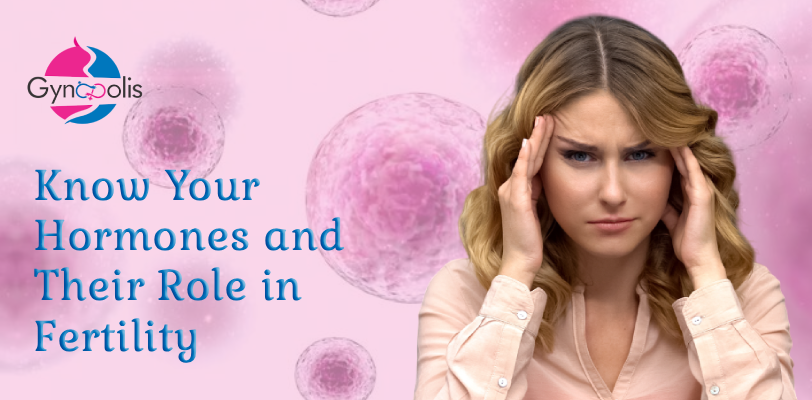Subtotal ₹0.00
Let’s face it, most of us don’t really think about hormones unless something’s going wrong. Maybe your mood’s all over the place, your periods are irregular, or you’re trying to conceive and it’s taking longer than expected. The truth is, hormones play a huge role in our overall health, especially when it comes to fertility.
For women in particular, understanding how these tiny chemical messengers work can make a big difference in preventing issues and improving your chances of a healthy pregnancy. So, let’s dive into the basics and explore why knowing your hormones matters.
What Are Hormones, Anyway?
Hormones are like your body’s internal messengers. Produced by glands in your endocrine system, they travel through your bloodstream and send signals to organs and tissues, telling them what to do. These signals regulate everything from your metabolism and mood to your sleep cycle and reproductive system.
When it comes to fertility, hormones are responsible for key things like ovulation, egg production, the menstrual cycle, and maintaining a pregnancy.
The Main Hormones Involved in Reproduction
Now that we know what hormones do, let’s talk about the ones that directly impact fertility, especially in women. These six hormones work together to keep your reproductive system functioning properly:
1. Estrogen
A key female hormone responsible for regulating the menstrual cycle and supporting overall reproductive health.
- Low Estrogen: May cause irregular or missed periods.
- High Estrogen: Can contribute to fibroids, endometriosis, or mood swings.
2. Progesterone
After ovulation, progesterone helps thicken the uterine lining so a fertilized egg can implant. If you become pregnant, it continues to support the early stages.
- Low Progesterone: Can cause irregular periods, spotting, or increase the risk of miscarriage.
- High Progesterone: Might lead to fatigue, bloating, or mood swings (though excess is less common naturally).
3. Follicle-Stimulating Hormone (FSH)
FSH helps your ovaries produce follicles, tiny sacs that hold immature eggs. It’s essential for egg development and ovulation.
- Low FSH: May lead to poor follicle development, affecting ovulation and fertility.
- High FSH: Can signal diminished ovarian reserve or early menopause, making conception harder.
4. Luteinizing Hormone (LH)
Triggers ovulation (egg release) and supports corpus luteum function.
- Low LH: May result in anovulation (no egg release), causing infertility or irregular periods.
- High LH: Often seen in PCOS (Polycystic Ovary Syndrome) and can disrupt normal ovulation patterns.
5. Prolactin
Stimulates milk production after childbirth.
- Low Prolactin: Rare, but can affect breastfeeding and indicate pituitary dysfunction.
- High Prolactin: Can stop ovulation, cause missed periods, or lead to infertility when not pregnant or breastfeeding.
6. Anti-Müllerian Hormone (AMH)
AMH gives doctors insight into your ovarian reserve, that is, how many eggs you still have. It’s often used as a marker of fertility potential.
- Low AMH: Suggests a reduced egg supply, often linked to aging or premature ovarian failure.
- High AMH: May indicate PCOS, which can affect regular ovulation and fertility.
Why Hormonal Balance Matters
Keeping your hormones in check isn’t just about fertility, it impacts your overall well-being. For women, balanced hormones help regulate:
- Menstrual cycles
- Ovulation
- Pregnancy health
- Mood and energy levels
For men, hormones affect sperm quality, libido, and erectile function. So, whether you’re planning a family or just want to feel your best, hormone health should be a top priority.
What Happens When Hormones Are Out of Balance?
Hormonal imbalances can cause a wide range of issues, especially when it comes to fertility.
In women, symptoms may include:
- Irregular or missed periods
- Polycystic Ovary Syndrome (PCOS)
- Difficulty conceiving
- Early miscarriages
- Mood swings or chronic fatigue
In men, signs might include:
- Low sperm count
- Erectile dysfunction
- Reduced sex drive
- Constant tiredness or depression
Simple Ways to Support Hormonal Health
The good news is, your lifestyle plays a big role in keeping hormones balanced. Here are some easy, effective tips:
- Eat a balanced diet rich in whole foods, healthy fats, and protein.
- Sleep well – aim for 7-8 hours each night.
- Exercise regularly, but don’t overdo it.
- Reduce stress with meditation, yoga, or time outdoors.
- Limit alcohol, caffeine, and ultra-processed foods.
Final Thoughts
Hormones may be invisible, but their impact is massive, especially when it comes to your reproductive health. Whether you’re actively trying to get pregnant or just starting to think about it, understanding your hormones is one of the best things you can do for your body.
Listen to what your body is telling you, prioritize your well-being, and don’t be afraid to talk to a healthcare provider if something feels off. When your hormones are in harmony, your whole-body benefits.



Comments are closed